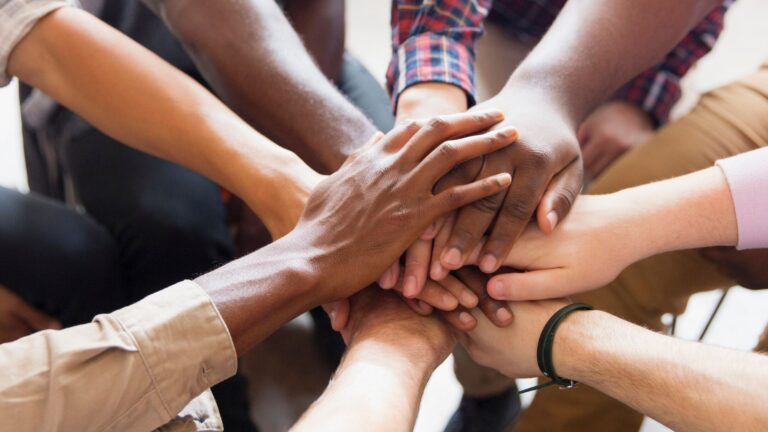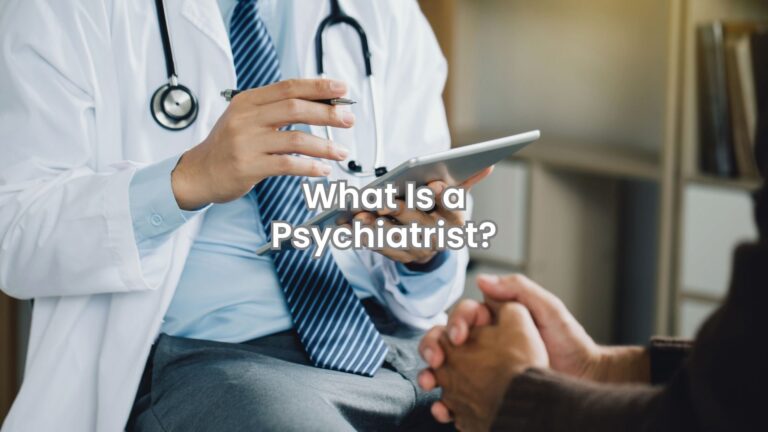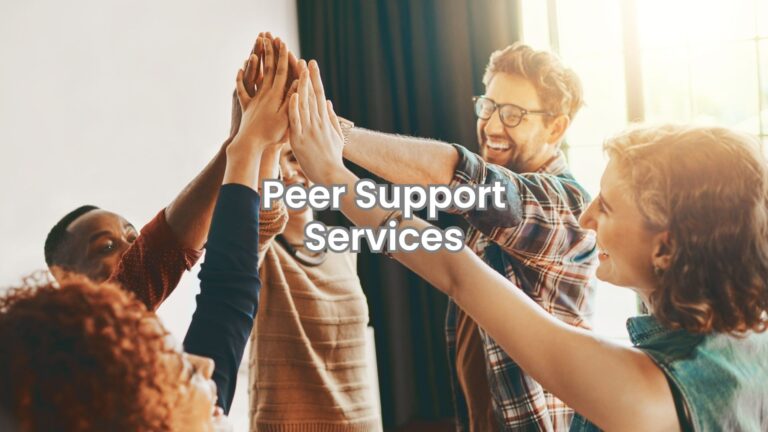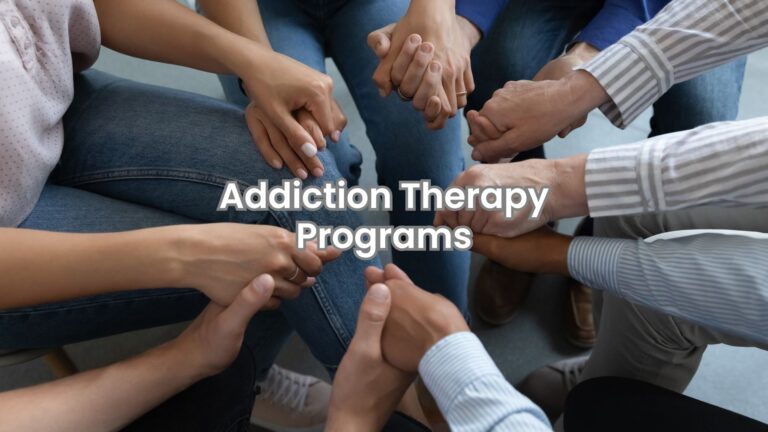So, you’re looking at addiction treatment Columbus—maybe for yourself, maybe for a loved one.
Either way, let’s get real.
This isn’t a quick fix.
This is about changing your life, and it’s going to take commitment, strategy, and a deep understanding of what recovery actually involves.
Here’s the deal: getting clean and sober isn’t the end goal.
Staying that way? That’s what you’re really after, and for most people, therapy is one of the biggest game-changers on this journey.
You see, addiction therapy isn’t just about talking; it’s about rewiring your brain.
It’s about taking control of your mind so that you’re not just living life in reaction mode—reacting to stress, to cravings, to everything that might send you off-track.
And right here in Columbus, there are programs, tools, and support systems built for just that.
Welcome to the real, unfiltered look at addiction treatment Columbus style.
Let’s dive into the heart of addiction therapy, why it matters, and how it can be the bedrock of a sober future.
Understanding Addiction: Why Therapy is Non-Negotiable in Recovery
Here’s a tough truth—quitting is hard, but it’s not the hardest part.
The hardest part is understanding why you started and figuring out why you kept going back.
That’s where addiction therapy comes in. It’s the mirror that helps you see the patterns, triggers, and mental roadblocks that keep you locked in that cycle.
In fact, if you skip therapy, you’re just setting yourself up for a rerun of the same issues.
Why therapy?
It gives you a real shot at not needing substances to cope.
Because without understanding the “why,” you’re basically playing tug-of-war with yourself.
One bad day, one stressful moment—and boom. It’s all too easy to fall back.
Therapy Types You’ll Find in Addiction Treatment Columbus Centers
- Individual Therapy:
You get one-on-one time with a licensed therapist. This is where you dig into the why behind your addiction and start rewriting those thought patterns. - Group Therapy:
Let’s face it, addiction is isolating.
Group therapy helps you build connections and see you’re not alone. Everyone’s dealing with their own battles, and there’s strength in that shared experience. - Family Therapy:
Addiction isn’t just about the person using—it affects everyone. Family therapy helps rebuild trust, set healthy boundaries, and repair relationships that addiction has strained or broken. - Specialized Therapies (CBT, DBT):
Techniques like Cognitive Behavioral Therapy (CBT) or Dialectical Behavior Therapy (DBT) are targeted at changing specific behaviors and thought patterns.
Why You Need All of This in Addiction Treatment Columbus
Therapy is like training for your mind.
It gives you tools, and it keeps you grounded.
And Columbus?
It has some of the best addiction treatment Columbus facilities around that offer these exact therapies. Places like Ridgeline Recovery LLC are designed to give you a full-service experience.
The Role of Medication-Assisted Treatment in Columbus
Now, let’s talk about another tool: Medication-Assisted Treatment (MAT).
Here’s the short version: MAT isn’t a crutch; it’s a support.
What is it?
For people dealing with opioid or alcohol addiction, MAT uses specific medications to help manage cravings.
Think of it like stabilizing wheels on a bike—they’re not the whole solution, but they help you gain balance.
If you’re worried about becoming dependent on medications like Vivitrol or Suboxone, think about this:
These medications are scientifically proven to support long-term recovery.
They’re tools, and in addiction treatment Columbus, you have access to vivitrol clinics near me and other MAT resources that can help you manage those early cravings without throwing you back into the addiction cycle.
Columbus Therapy Options: Beyond Traditional Rehab
Columbus is stacked with options beyond the classic rehab setup.
Here’s what makes it a solid choice for people who want the flexibility to build a life they’re proud of.
Outpatient Programs
Outpatient programs let you live your life while getting therapy on the side.
It’s like fitting your recovery into your everyday schedule, which can be a lifesaver if you have responsibilities you can’t just step away from.
But don’t think outpatient is a watered-down version of rehab.
It’s rigorous and demands commitment.
The difference? You’re using your new skills in the real world, every single day.
Intensive Outpatient Programs (IOP)
IOPs are the middle ground between inpatient and outpatient.
Think of it as rehab that you can go home from.
IOP programs in addiction treatment Columbus are ideal if you need structured treatment but can’t commit to a full-time facility stay.
Inpatient Programs
For those dealing with severe addiction, inpatient rehab gives you the time and focus you need to reset.
You’re pulled out of your everyday life, and for a few weeks, you focus on nothing but your recovery.
It’s intense, it’s immersive, and it can be life-changing.
Addressing Co-Occurring Disorders: Why Mental Health Matters in Recovery
Addiction is rarely a solo act—it usually brings friends like anxiety, depression, or trauma.
This is what we call “co-occurring disorders.”
In addiction treatment Columbus, treating these underlying mental health issues is standard practice, and it’s essential.
Because here’s the truth:
You can’t fix addiction without addressing mental health.
If you’ve been using substances to numb anxiety or depression, removing them without treating the underlying issue will leave you vulnerable.
Mental health clinics near me can offer therapy for conditions like PTSD, depression, and anxiety alongside addiction treatment Columbus.
If you’re looking for real, lasting results, treating mental health isn’t optional—it’s critical.
Family and Community Support: Building a Network in Columbus
Recovery isn’t a solo journey, and Columbus has a strong community focus on addiction recovery.
Whether it’s through family therapy, group support, or aftercare, addiction treatment Columbus prioritizes community healing.
- Family Therapy – This doesn’t just help you; it helps your loved ones understand their role in your recovery.
- Group Support – Groups like AA or NA, as well as non-12-step programs, are there for anyone who needs ongoing support.
- Community Aftercare – Post-rehab, you can stay connected through alumni programs and community events designed to keep you grounded.
Aftercare: Staying Sober in the Long Term
So, you’ve done the hard work. You’ve gone through therapy, you’re clean, and you’re ready to move on.
But here’s the thing—sobriety doesn’t just stop. It’s an ongoing process, and aftercare is the backbone.
Aftercare keeps you on the path. It’s the difference between getting by and actually thriving in sobriety.
Why Therapy is Essential for Sustainable Recovery
When it comes to Addiction Treatment Columbus, here’s what people don’t talk about enough: the actual work that goes into sustainable sobriety.
It’s not about just quitting. That’s step one. Staying clean? That’s a marathon.
And to run that marathon, therapy is your training ground.
Think about it like this: you’re not just breaking a habit. You’re dismantling a pattern of thinking and re-learning how to live. Therapy isn’t just talking about your feelings; it’s practical, strategic, and every bit as essential as detox.
Whether you’re doing this for yourself or supporting a loved one, getting serious about therapy in Addiction Treatment Columbus Ohio is one of the smartest moves you can make.
Breaking the Stigma of Therapy in Addiction Treatment Columbus

Why Therapy is About Strength, Not Weakness
Look, for a lot of people, admitting they need therapy feels like admitting defeat.
But here’s the reality: getting into addiction therapy is one of the strongest moves you can make.
In Columbus, addiction recovery centers don’t just offer treatment; they help people develop the resilience and skills to handle life. Therapy builds that skill set.
It takes serious grit to sit with a therapist and confront the hard truths of your own mind, behaviors, and triggers.
How Columbus Embraces a Therapy-First Approach
Columbus is unique in that it offers a wide array of mental health services near me that are designed specifically to support addiction recovery.
Therapy is about taking charge of your recovery. It’s about shifting from survival mode to actually thriving.
It’s less about “fixing” you and more about giving you tools that last.
Whether it’s working with a mental health therapist near me or attending a vivitrol clinic near me to manage cravings, Columbus has a structure in place to support recovery that lasts.
The Role of Community in Recovery: Why Columbus Stands Out
Recovery isn’t a lone-wolf operation. If you’re serious about addiction recovery Columbus, you’ll find that community is a core component.
When you get plugged into a support system, you’re surrounded by people who get it.
This isn’t a passive process. The addiction treatment Columbus community isn’t here just to pat you on the back. They’re here to keep you accountable, challenge you, and lift you up when the going gets tough.
Finding Supportive Resources Near You
Whether it’s mental health hospitals near me or outpatient addiction therapy near me, Columbus has the resources.
Aftercare programs, group therapy, and sober living communities—these are all options that make long-term recovery a reality.
Sober Living Facilities and Why They’re a Game-Changer
Let’s talk about half-way homes and sober living environments.
A lot of people underestimate the impact of having a safe, structured place to live while they rebuild their lives.
These are places designed to keep you grounded, offering stability, support, and an environment where sobriety is encouraged.
These facilities are often linked with mental health clinics near me and drug and alcohol recovery centers to provide a full-circle support system.
Addressing Physical Health in Recovery: Detox, Nutrition, and Exercise
Detoxification: Where It All Starts
Detox is the first major hurdle in Addiction Treatment Columbus, and for good reason.
You can’t start healing your mind if your body is still battling withdrawal.
Places like alcohol detox centers near me or drug abuse treatment centers provide medically supervised detox to keep you safe and comfortable during this process.
It’s a misconception that detox is the hardest part. Yes, it’s physically grueling, but detox is only the beginning.
True recovery goes way beyond the physical.
Nutrition in Recovery: Foods that Detox and Rebuild
Addiction drains the body. Rebuilding it means fueling it right.
It might sound simple, but focusing on foods that detox the body can actually play a significant role in recovery.
Nutrition matters. The right foods can stabilize mood, manage cravings, and provide a foundation of health that makes recovery easier to sustain.
For many, learning about nutrition is as essential as addiction therapy because it directly affects mental resilience.
The Impact of Addiction on Mental Health: Treating Co-Occurring Disorders
Addiction Treatment Columbus isn’t just about ending substance use—it’s about total wellness.
If you have underlying mental health challenges, ignoring them would be a massive mistake.
What Are Co-Occurring Disorders?
Co-occurring disorders are when someone deals with both a substance use disorder and a mental health condition, like depression, anxiety, or PTSD.
When untreated, these conditions fuel each other, making recovery harder.
Mental health treatment centers near me often offer dual-diagnosis programs to address these issues together.
Treating both simultaneously is the gold standard because it makes relapse less likely and gives you tools for managing both challenges.
Why Dual-Diagnosis Treatment is a Game-Changer
The reality is that for many, substance use is a coping mechanism for mental health challenges.
If those issues aren’t treated, you’re left with the same triggers that led you to use in the first place.
Dual-diagnosis treatment involves working with a mental health therapist near me or even inpatient programs at mental health hospitals near me. It’s a comprehensive approach that takes both the addiction and the underlying issues seriously.
Medication-Assisted Treatment: Breaking Down MAT Misconceptions
In Addiction Treatment Columbus, Medication-Assisted Treatment (MAT) has grown in popularity because it works.
For opioids and alcohol, MAT can reduce cravings and block the effects of drugs if someone does relapse.
But let’s clear up some misconceptions—MAT isn’t just about swapping one drug for another. It’s a medical tool.
How MAT Works
- Vivitrol Clinics – Provides a monthly injection that blocks opioid and alcohol effects.
- Suboxone – Used in opioid recovery to reduce cravings and minimize withdrawal.
These aren’t substitutes; they’re supports.
They give you enough stability to work on the deeper issues in therapy without battling constant cravings.
Who Benefits Most from MAT?
MAT isn’t for everyone, but it can be incredibly beneficial for people with long-term addiction histories.
If you’ve tried quitting multiple times without success, MAT might be the extra support that makes the difference.
Finding Purpose in Recovery: Beyond Sobriety
Staying sober is the goal, right? Yes, but there’s more to it than that.
The most successful recoveries involve a shift from focusing on “not using” to finding purpose and joy in life.
Setting New Goals and Pursuing Passions
Once you’re free from addiction, you have the freedom to rediscover old interests or develop new ones.
Whether it’s connecting with people in fellowshipping groups, picking up books about addiction for education, or finding a new hobby, life in recovery is full of potential.
Building a Vision for the Future
Recovery is about creating a vision that’s more powerful than addiction.
When you have something to strive for—whether it’s relationships, career goals, or personal growth—sobriety feels like a natural choice rather than a constant struggle.
The Power of Community in Addiction Treatment Columbus: Building Lasting Connections
Why Community Matters in Recovery
Here’s the hard truth: addiction thrives in isolation.
One of the most significant advantages of addiction treatment Columbus offers is a sense of community.
You can’t do this alone. And the power of a supportive community is an invaluable resource on your journey.
Addiction often makes people feel cut off from others, unable to relate to or connect with loved ones.
When you’re in a recovery-focused community, whether through a mental health clinic or a half-way home, you’re among people who get it.
The result? You’re no longer battling addiction in a vacuum. You’re surrounded by others who know what it’s like and want to see you succeed.
How Community Fosters Accountability
In addiction recovery Columbus, accountability is more than just showing up to a meeting. It’s about keeping commitments, building integrity, and having people you trust to give you honest feedback.
Being part of a community means that when times get tough, you have people who will encourage you to stay on track and remind you why you started this journey in the first place.
When you commit to addiction therapy near me or a mental health therapist near me in Columbus, you’re choosing to build relationships that last beyond recovery.
These connections keep you grounded and make every milestone in recovery feel worth celebrating.
Finding the Right Community for Your Recovery Style
Not all recovery communities are the same. Columbus has a variety of options to fit different recovery styles:
- 12-Step Programs: Based on a traditional framework, these groups foster fellowship and accountability.
- SMART Recovery Groups: A secular, self-management approach that’s goal-focused and empowering.
- Therapeutic Communities: Often linked to mental health clinics near me, these structured environments are ideal for those seeking both treatment and community.
Strategies for Long-Term Sobriety: Planning Beyond Treatment
Developing Your Personal Toolkit for Recovery
After treatment, you’ll need a toolkit that’s strong enough to help you stay grounded in the real world.
Building a personalized recovery toolkit can make the difference between success and relapse.
Here’s what this looks like in addiction treatment Columbus:
- Mindfulness Practices: Techniques like meditation and deep breathing can help manage stress.
- Relapse Prevention Plans: Developing a clear plan to handle triggers and stressors, ideally created with a mental health therapist near me, prepares you for real-life challenges.
- Physical Wellness: Staying active and eating well can provide a strong physical foundation for recovery. If you’ve detoxed from drugs or alcohol, you’ll need to rebuild your body with foods that detox and nourish.
Identifying and Managing Your Triggers
Triggers can be anything from a stressful day at work to places that remind you of past substance use.
In Columbus, treatment providers emphasize proactive trigger management, which includes:
- Behavioral Therapy: Techniques like Cognitive Behavioral Therapy (CBT) help you spot negative thought patterns.
- Environmental Changes: Creating a safe, supportive living environment, like a half-way home, can reduce the risk of running into old triggers.
- Self-Care Routines: Finding joy in healthy activities, whether it’s exercise, reading, or spending time in nature, makes it easier to avoid cravings.
Leaning Into Your Purpose: Recovery Beyond Addiction
Long-term recovery doesn’t just mean staying clean; it means finding a life purpose that’s powerful enough to inspire you every day.
When you’re committed to something bigger than addiction, staying sober becomes not only possible but fulfilling.
Think about activities, goals, or relationships that mean something to you.
These could be anything from career ambitions to family commitments or personal passions.
The Role of Trauma Healing in Addiction Treatment Columbus
Why Trauma Matters in Addiction Recovery
Trauma is a major underlying factor in addiction for many people.
For those who have experienced it, substance use can feel like a form of self-medication to avoid confronting painful memories.
Ignoring trauma will eventually hold you back in recovery. That’s why addiction treatment Columbus programs often include trauma-focused therapy.
These therapies help you process past experiences in a safe, controlled environment, allowing you to move forward.
Types of Trauma Therapy Available in Columbus
- Eye Movement Desensitization and Reprocessing (EMDR): This therapy helps people process traumatic memories by focusing on eye movements.
- Trauma-Focused Cognitive Behavioral Therapy (TF-CBT): A variation of CBT that’s aimed at addressing trauma.
- Group Therapy: Processing trauma with others who have similar experiences can be powerful, often facilitated through mental health services near me.
Trauma recovery is a crucial part of addiction therapy services because it helps people rebuild from the inside out.
Addiction and Family Dynamics: Rebuilding Relationships
How Addiction Affects Loved Ones
Addiction doesn’t just affect the person who’s using—it impacts everyone around them.
The guilt, anger, and mistrust that family members feel can add significant strain on relationships.
In addiction treatment Columbus Ohio, family therapy plays a vital role.
Family involvement in recovery can help rebuild trust, improve communication, and ultimately create a more supportive home environment.
What Family Therapy Looks Like in Columbus
Family therapy addresses these common challenges:
- Establishing Boundaries: Learning how to communicate effectively without enabling addictive behaviors.
- Rebuilding Trust: Rebuilding trust takes time, but therapy helps family members and the person in recovery establish new norms.
- Understanding Addiction: Often, family members don’t fully understand the nature of addiction. Educating loved ones about the science of addiction can make a big difference.
Incorporating family into your recovery journey through therapy creates a support system that extends far beyond the treatment center walls.
Exploring Holistic Treatment Options in Addiction Recovery

What is Holistic Treatment?
Holistic treatment focuses on healing the whole person—mind, body, and spirit.
Addiction treatment Columbus is moving towards more integrative approaches that consider all aspects of a person’s well-being.
It’s about helping people rediscover a balanced lifestyle that goes beyond sobriety.
Types of Holistic Therapy Offered in Columbus
In Columbus, many mental health clinics and recovery centers now offer holistic therapies, which may include:
- Yoga and Meditation: These practices promote mental clarity and reduce stress.
- Nutritional Counseling: Proper nutrition supports mental and physical health.
- Art and Music Therapy: Expressive therapies allow individuals to process emotions creatively.
These therapies, often combined with traditional treatments like inpatient therapy near me or outpatient alcohol rehab, offer a more rounded recovery experience.
Why Holistic Treatment Matters
Holistic treatment aims to equip people with tools for all areas of life.
You’re not just addressing the addiction but creating a fulfilling life that makes recovery sustainable.
How Long-Term Addiction Treatment Columbus Sets You Up for Success
Why Longer Treatment Can Be More Effective
Recovery is not a quick fix, and it doesn’t have to be. Long term addiction treatment Columbus offers the depth of support and structure that many people need to truly heal.
Think of it as giving yourself the time to learn, practice, and cement new habits that make a return to substance use much less likely.
In Addiction Treatment Columbus, long-term care can mean a combination of extended inpatient treatment, followed by outpatient programs and sober living arrangements.
The Phases of Long-Term Addiction Treatment Columbus
- Detoxification: The initial phase, often taking place in a drug abuse treatment center or alcohol detox center.
- Inpatient Rehabilitation: A structured, supportive environment with 24/7 care.
- Outpatient Programs: Transitioning to independence with continued therapeutic support.
- Aftercare and Sober Living: Community-based support that provides accountability and structure post-treatment.
Each phase of long-term treatment reinforces the skills needed for independence and sustained recovery.
The Role of Aftercare in Sustaining Sobriety
Once formal treatment ends, aftercare programs offer continued support.
Many people stay connected with addiction recovery near me or drug recovery near me programs to maintain that support.
Columbus has a wealth of aftercare resources, from support groups to individual therapy sessions, that keep people engaged and supported.
The Financial Aspect of Addiction Treatment Columbus : Making Recovery Accessible
Navigating Insurance and Payment Options
One of the biggest concerns people have is the cost of addiction treatment Columbus.
In Columbus, there are options that can make treatment more accessible, whether through insurance, sliding scales, or grants.
- Insurance Coverage: Many treatment facilities accept major insurance providers, including Humana in-network providers.
- Payment Plans and Financing: Some mental health clinics near me offer flexible payment options.
- Grants and State-Funded Programs: Ohio has several grants and programs to help people afford addiction treatment Columbus.
Why Investing in Recovery is Worth It
While treatment can be costly, think about it as an investment in your future.
Choosing addiction treatment Columbus means you’re giving yourself the chance to reclaim your life, health, and happiness. The payoff is beyond measure.
Answering Your FAQs About Addiction Treatment Columbus
Q: How important is therapy in addiction treatment Columbus?
A: Therapy is critical. Addiction Treatment Columbus programs place a strong emphasis on therapy because it’s where lasting change happens.
Q: Can I recover without medication?
A: Yes, many do. But for some, MAT can be a helpful bridge. It’s not a crutch; it’s a tool to support your recovery.
Q: What’s the difference between inpatient and outpatient programs?
A: Inpatient provides 24/7 support, ideal for severe cases. Outpatient lets you live at home, perfect for those who need treatment but can’t leave responsibilities behind.
Q: Is addiction treatment Columbus expensive?
A: Cost varies, but many mental health clinics near me and drug programs near me accept insurance, and some even offer sliding-scale fees. Financials shouldn’t stop you from getting help.
Q: How long does addiction treatment Columbus usually last?
A: Treatment can vary from 30-day programs to several months, depending on your needs. But here’s the thing—recovery is lifelong. Even after treatment, ongoing support is key.
Q: Can I work while in treatment?
A: Yes, especially with outpatient and IOP options. You can maintain your life while getting the help you need.
Q: What role does family play in recovery?
A: Family support is a massive asset in recovery. Family therapy can rebuild trust, set boundaries, and create a support network that’s there when you need it.
Q: Is therapy mandatory in addiction treatment Columbus?
A: Technically, no one can force you, but therapy is strongly recommended. Recovery without therapy is like trying to fix a leaking boat with duct tape—temporary at best.
Ready to Take Action?
Addiction Treatment Columbus isn’t a quick fix. It’s a commitment to yourself, your future, and the life you want to build.
Whether it’s getting serious about therapy, considering MAT, or building a new life structure in a sober living facility, every step is a step toward lasting freedom.
Ridgeline Recovery LLC: Where Change Begins in Columbus
At Ridgeline Recovery, we’re here for those who want more than a quick fix.
We’re here for those who are ready to do the work, to dig deep, and to build a life they’re genuinely proud of.
Located at 491 Georgesville Rd, Columbus, OH, Ridgeline Recovery is staffed with specialists who get it.
We offer everything from individual therapy to MAT and dual-diagnosis treatment because we know recovery isn’t a one-size-fits-all deal.
Want to know more? Call us at 614-618-5000 or visit www.ridgelinerecovery.com.
Call Us Now!
If you or a loved one is struggling with heroin or alcohol dependency, reach out to Ridgeline Recovery Center in Columbus, Ohio, today. At Ridgeline Recovery, we offer a path to hope and healing. Our comprehensive Addiction Recovery services include Addiction Therapy, Addiction Treatment, Vivitrol Clinic and specialized Mental Health Services designed to support your journey to recovery.
We provide Aftercare Programs and Peer Support to ensure you have ongoing assistance after treatment. Our dedicated team offers Case Management and Child Services for those needing extra support. For individuals who prefer a faith-based approach, we offer Faith-Based Recovery options.
Our programs feature Group and Individual Counseling, along with Medication-Assisted Treatment (MAT) to address your unique needs. We also have an Intensive Outpatient Program (IOP) and a Partial Hospitalization Program (PHP) for more structured care.
Our team includes Registered Nurse Services, Psychiatric Services, and Therapeutic Behavioral Services (TBS) to provide comprehensive support throughout your recovery process. We work with various Insurance Coverage plans to help you access the care you need.
Don’t wait—contact us now to start your journey toward a brighter future with Ridgeline Recovery.
For more stories and information Contact Us, visit our Blog page and Stories & Highlights.







